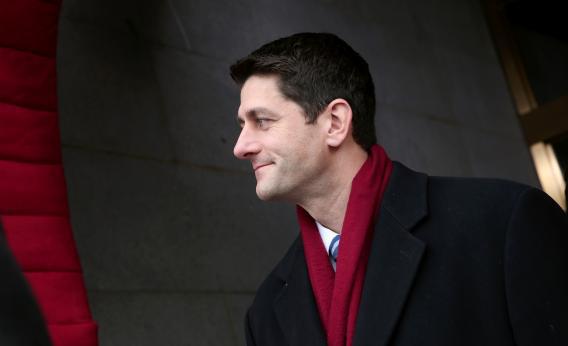One of the developments of the past few years that’s so peculiar that few people have really gotten their heads around it is the way in which conservative members of the House of Representatives have emerged as the key institutional roadblock to large cuts in American social insurance programs.
You really see this, however, in Ezra Klein’s recounting of his dialogue with Paul Ryan about taxes. It’s clear that Ryan favors lower taxes. It’s clear that Klein doesn’t believe Ryan has an empirically well-grounded basis for this strong preference for lower taxes, but I’m confident that if Ryan dispatched a staffer to spend an hour with the NBER search function, he could come up with some studies. What’s more, when you’ve got the Gospel According to Ayn Rand it’s not clear that you need empirical evidence. The really puzzling thing in Ryan’s disquisition on the subject is his unwillingness to show any tactical flexibility. Barack Obama has, at various points, offered to enact substantial spending cuts in exchange for Republican support for tax hikes. Republicans have invariably shot these proposals down and they appear to reject the idea in principle. It’s not that Obama has only been willing to cut in certain ways. He’ll raise the eligibility age for Medicare or enact an across-the-board cut in Social Security. But Republicans have to pony up some tax increases in exchange.
They won’t do it and they won’t quite say why they’ll do it.
But they don’t quite explain why. In fact, they basically just won’t answer the tactical question at all. When interrogated, they answer a different question and give their reasons for preferring lower taxes rather than higher taxes. The implication, I guess, is that there’s no need to put forward a spending cut plan that can gain Democratic support because at some future date they’ll win an electoral sweep and enact large spending cuts via the budget reconciliation process. But even so, agreeing to a higher-taxes-and-lower-spending plan in 2013 wouldn’t prevent them from enacting large cuts in taxes and spending via reconciliation if they win a clean sweep in 2016 or some future date.
I suspect that the real reason here has to do with the internal tensions in the Republican caucus over Medicare. Republicans want to want to roll back the welfare state but on some important level don’t actually want to do it. The way through is to refuse to cut Medicare and Social Security while insisting that anti-tax ideology is what’s preventing them from agreeing to cuts. But back in 2003 when they ran the zoo, that anti-tax ideology compelled them to cut taxes and they simultaneously increased Medicare benefits.
